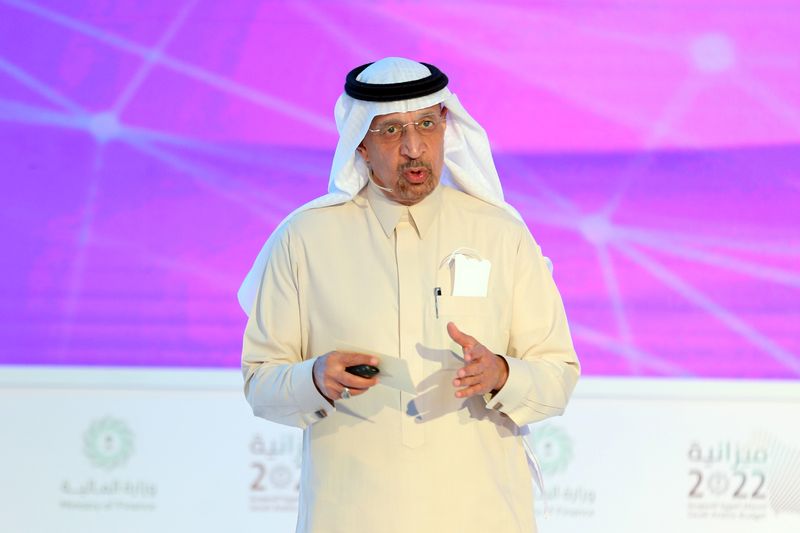GCC-China free trade deal must protect emerging Gulf industries – Saudi minister
2023.06.11 06:31

© Reuters. FILE PHOTO: Minister of Investment of Saudi, Khalid Al Falih speaks during Saudi 2022 Budget Forum in Riyadh, December 13, 2021. REUTERS/Ahmed Yosri
By Aziz El Yaakoubi
RIYADH (Reuters) – The free trade deal being negotiated between China and the Saudi Arabia-dominated Gulf Cooperation Council needs to protect emerging Gulf industries, the Saudi investment minister said on Sunday, adding he hoped it would be finalised soon.
“We need to enable and empower our industries to export, so we hope all countries that negotiate with us for free trade deals know we need to protect our new, emerging industries,” Investment Minister Khalid al-Falih said.
“We need to provide them with market economics and some kind of protection,” he said at the Arab-China Business Conference in Riyadh, without providing more detail.
Talks on a China-GCC Free Trade Agreement (FTA) began in 2004 but have repeatedly stalled, most recently in 2016 after a ninth round. They have recently seen renewed momentum under warming ties between Saudi Arabia, under Crown Prince Mohammed bin Salman, and China, with China’s foreign minister in early 2021 calling for talks to resume.
Falih said he hoped the talks would soon result in a deal.
“We have come a long way. The leadership from both sides is showing willingness,” Falih said.
The Gulf’s two biggest economies, Saudi Arabia and the United Arab Emirates, have launched new industrial strategies to boost domestic economic growth and non-oil exports. Saudi Arabia is developing sectors including domestic manufacturing, mining and minerals, and advanced technology.
“GCC countries – the Kingdom of Saudi Arabia in particular as the biggest economy, population and workforce – we need to work on sectors other than the energy sector,” Falih said about what the GCC states are looking for in any deal.
Gulf countries, such as the United Arab Emirates, are putting increasing energy into trade deals and investment partnerships as they look to diversify their hydrocarbon-centric economies.








